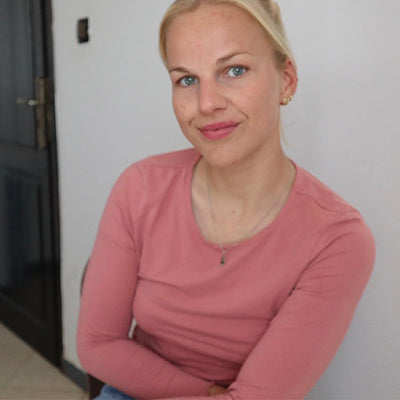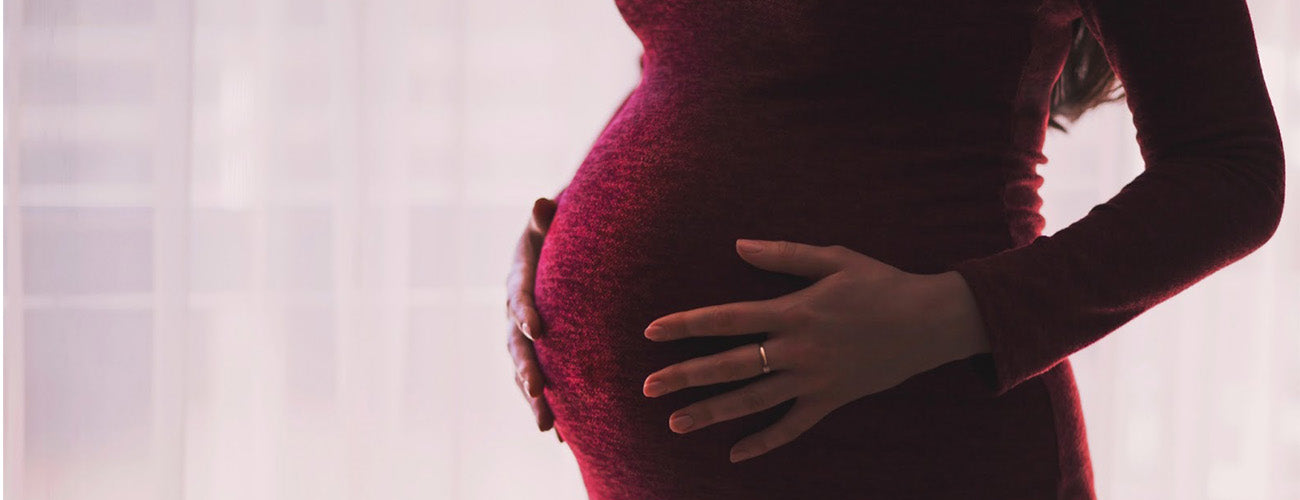Shining a New Light on Childbirth - Bridging the Gap between the Medical and The Sacred In-Between
 Renée Boskaljon
Renée Boskaljon


Renée Boskaljon
Renée Boskaljon is a Dutch, modern-day student living in Morocco, studying an online Masters in Refugee Protection and Forced Migration Studies. Besides spending time surfing Moroccan waters, she aspires to write stories that challenge her beliefs and those around her.
Shining a New Light on Childbirth - Bridging the Gap between the Medical and The Sacred In-Between
As a Dutch woman, being born at home felt utterly ordinary, and so did I perceive my mother's positive recallings of pregnancy and childbirth. I remember her illuminating face when she passionately spoke about it as a smooth, extraordinary, and empowering process. My perceived normality of home births and positive experiences surrounding childbirth firmly contradict those in the US. So, I felt the urge to explore my mother's narrative... What enabled her to experience pregnancy and birth as empowering and magical while many women in the US may experience the latter? So I called her, and she told me how she felt confident and supported in every facet throughout the entire process, from pregnancy to childbearing, an experience, regardless of race and socio-economic factors, every woman deserves to have.
In this context, mothers desire to return to the sacredness and simplicity of childbirth, sensing it as a life experience endowed with rich spiritual meaning.
The picture my mother paints around her interaction with the Dutch healthcare system is one of security, trust, and freedom. The financial situation adds to a relatively carefree relation to health services; When you are a Dutch citizen, all medical bills related to maternity care are covered under your health insurance. The government provides health insurance for everyone who lives or works in the Netherlands. Unfortunately, the American maternity care system is far removed from such idyllic descriptions. There appears to be a culture of fear surrounding pregnancy and birth, amplified by the immense costs of health services. Inadequate communication between healthcare providers and mothers often results in mothers feeling disempowered, unheard, and mistreated. Medical interventions are often routinely applied without thoroughly examining its need and consulting the patient- In this context, mothers desire to return to the sacredness and simplicity of childbirth, sensing it as a life experience endowed with rich spiritual meaning.
When my mother learned she was pregnant, she attended a midwifery practice. Pregnant women in the Netherlands may choose from many predominately small-scale and local midwives and obstetric professionals. The autonomy of the midwife, as a medical professional is a unique quality of the Dutch healthcare system. Due to the country's small size, with a hospital often no further away than a 20-minute ride, the option given to women with low-risk pregnancies in the Netherlands to deliver at home is unique in the industrialized world. Typically, an obstetrician will accompany the mother's birth regardless of whether she chooses to deliver at home (only permitted when there are no medical issues) or in the hospital.
When my mother first met her midwife, Ineke, she recalls an immediate feeling of serenity, "I felt safe in the hands of this woman. I knew that if she would say I can deliver at home, I will do it." While thousands of miles apart, my mother's warm, blissful pregnancy memories vibrate through the phone line. While she struggled with anxiety in other aspects of her life during pregnancy and birth, she felt surprisingly safe and confident, which could only flourish, accompanied by the Dutch system's reliable and plentiful health services. Like most Dutch pregnant women, my mother went to pregnancy yoga, oftentimes this is covered by our insurance plan. "They informed us how a delivery worked and how we could support our body to prepare for the pain." Pregnancy yoga has been vital for women to develop realistic expectations surrounding childbirth and enabled a sense of community. "I saw many women in my group form friendships during this time. We were all at the same stage in our process. When we would give birth to our children, the mothers would also visit each other."
When I asked her what her deliveries had looked like, I somehow expected chaos, but it was quite the opposite! "When the contractions began, I informed my midwife. She came to our home to check on me. Usually, she would leave the first time if she saw the dilation was still only a few centimeters. When the contractions strengthened and began to come more rapidly, she would return and guide me through the delivery." In the meantime, the maternity nurse would prepare the room for the baby and also support my father. When the baby was there, the maternity nurse would stay for about eight days to teach them everything they needed to know to care for the baby. She also cared for my mother and sometimes even cooked and cleaned.
In a sense, unbeknownst to her, a spiritual and nurturing aspect was plugged into our health care system.
My mother had been fortunate to conceive without needing pain medication or medical intervention. Even the pain was magical, or an "extraordinary primal force" that would alleviate the intensity the moment the baby lay on her chest. "Having overcome the pain, I felt I could handle the world." While many American women would already melt away by these descriptions, I have yet to mention that my mother never received any medical bill during the entire process. Yes, this is one hundred percent funded by the Dutch government.
When I asked my mother what she thinks of American women seeking doulas to support their maternity process, she firmly responded, "but that's too exaggerated." She spoke of her friend, a doula who did not permit her to visit her grandchild as the doula decided the baby had to attach only to the parents in the first weeks. Her opinion that deemed the presence of a doula as excessive seemed understandable from a Dutch context. In the Netherlands, my mother experienced a healthcare system that provided her with all the care and support she needed, the norm being women healthcare professionals who empathetically guided her through the whole process. In a sense, unbeknownst to her, a spiritual and nurturing aspect was plugged into our health care system.
While I could assure my mother that not all doulas are the same and that women may significantly benefit from their presence, I could understand her reaction. A level of hysteria and spiritual bypassing surrounding pregnancy and birth has been accompanied by a considerably growing group of women, or mom-influencers who disregard any medical advances. Yet, while a primal birth looks blissful on Instagram and can be beautiful and successful in many cases, it's important to recognize that generally, the medicalization of childbirth has radically reduced the number of maternity deaths. But has it gone too far? Though the virtues of medical development within maternity care are evident, many would argue that the medicalization of childbirth is excessive. Nowadays, medical intervention is the norm in most industrialized countries. Women with low-risk pregnancies frequently undergo routine intravenous infusions and oxytocin in labor, which often are deemed unnecessary.
More alarmingly, the virtues of medical developments in maternity care are not equally available to all, as particularly Black women are at risk of having their pain ignored or minimized. The US has the highest maternity rate among industrialized countries, and in this harrowing context, Black women are four times more likely to die during childbirth. A growing body of evidence and high-profile cases of fatal or near-fatal experiences, such as that of the tennis superstar Serena Williams, shows that US daunting maternity mortality rates are often a result of a healthcare system that leaves Black mothers behind. So where does the US system fall short, and how can we counter these daunting birthing disparities?
Many argue that the traditional healthcare system isn't built to appreciate childbirth as one of the most vulnerable experiences a woman may go through. The traditional maternity system has turned into a birthing industry that fails to fulfill the level of emotional consideration we need to deliver our children feeling secure and confident. Fortunately, many leaders in reproductive justice are doing amazing work in addressing these issues and restoring balance by incorporating ancient wisdom.
Latham Thomas, the founder of Mama Glow, began a lifestyle and maternity company to educate women about any fears or misconceptions about birth. Thomas aims to restore diversity in birth work that honors ancestral legacies and protects members of our most vulnerable populations. To fulfill this commitment, Mama Glow aims to expand access to doula services, and provide scholarships to attain a doula training program. A doula or a nonmedical position focused on emotional support, physical comfort, and patient advocacy helps mothers integrate spiritual practices within a clinical environment, guides complications, and pain before delivery, and help mothers navigate doctors and hospitals- one of the main reasons Black women and women of color are increasingly turning to doulas to advocate their position in the healthcare systems that marginalize minorities.
Furthermore, regardless of skin color, women consult doulas to fulfill their desire to return to the simplicities and sacredness of birth, in which they wish to minimize medical interventions when natural childbirth is possible.
Women have incorporated spiritual practices throughout childbearing for thousands of years. Historically and cross-culturally, childbirth is seen as a spiritual event due to the miraculous processes involved. It's proven that the involvement of spiritual practices enhances coping mechanisms and decreases the need for medical interventions during childbirth.
Continuous support from a doula reports as one of the most effective remedies for easing pregnancy and reducing the need for medical interventions. For this reason, doulas have become increasingly popular as women seek to cultivate a space that feels safe and sacred for them.
While many women will express appreciation for the medical interventions available to them when it increases the chance of bringing their baby safely into the world, the advancement of medical inventions in maternal care often appears to be accompanied by a devaluation of women's capacity to cultivate coping mechanisms through spiritual practices and beliefs.
My mother's experience with the Dutch healthcare system may teach us that women can flourish throughout their pregnancy, given they receive adequate women-centric support in which they are informed about their choices and educated about the process of pregnancy and labor. Given that traditional US maternity care lacks these qualities, women begin to take matters into their own hands.
While it may not be available to all of us to consult a doula, or attend pregnancy yoga classes we may want to advocate for our wishes and needs by gaining information that may teach us how to prepare our bodies to feel empowered throughout labor. While a culture of fear still grapples the US maternity system, a movement of women's advocates, such as Mama Glow's founder Latham Thomas shows hopeful efforts to bridge the gap between medical and holistic understandings of childbirth, which appreciate women's perspectives concerning their desire to cultivate a spiritual, safe and comfortable environment to bring their children into the world. And while we can take all the necessary precautions hoping to fulfill our desire to deliver naturally. We must remember that there is absolutely no shame if we end up in the hospital having a medical intervention or requesting pain medication. We must also be careful about how we perceive birth stories from other mothers. Stories, like my mother's, are helpful as they can be inspiring, but they may also be tricky as they may distort our expectations. In the end, women are without a doubt a force of nature, carrying infinite amounts of wisdom to bring life into this world! Every woman's birth story is uniquely beautiful, and each woman deserves options, resources, accessibility, nurture, sisterhood, and quality care to experience the divine phases that fulfill a cycle of radical, life-changing transformation.
